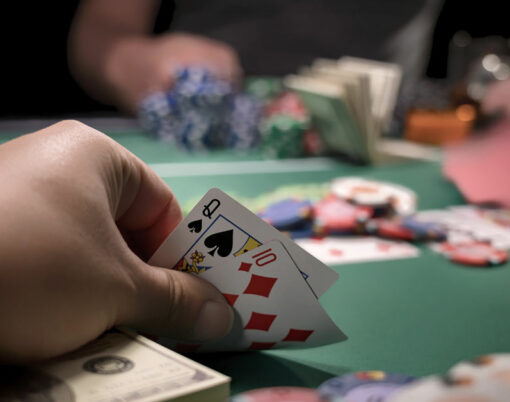In the world of lotteries, where the allure of instant wealth captivates millions, one man’s story stands out as truly extraordinary. Stefan Mandel, a Romanian-Australian economist, defied astronomical odds by winning the lottery not just once, but an astonishing 14 times. His remarkable success is a testament to the power of mathematical ingenuity and perseverance, offering a rare glimpse into the vulnerabilities of lottery systems.
From humble beginnings to legendary success
Mandel’s journey began in communist Romania, where he lived on a meager salary of $88 (£67) per month. Driven by a desire to provide a better life for his family, he turned his mathematical talents toward cracking the lottery. His initial two wins in Romania were just the start of what would become a legendary career in lottery victories.
After relocating to Israel and eventually settling in Australia, Mandel continued to refine his system, securing 12 more lottery wins. His success wasn’t a matter of luck; it was the result of a meticulously calculated strategy that exploited the very mechanics of lottery systems.

The six-step formula to lottery success
Mandel’s approach was anything but random. He developed a methodical six-step formula that became the cornerstone of his success:
- Calculate the total number of possible combinations for a given lottery.
- Identify lotteries where the jackpot is at least three times the number of possible combinations.
- Raise sufficient funds to purchase every possible combination.
- Print millions of tickets covering all combinations.
- Deliver the tickets to authorised lottery dealers.
- Win the jackpot and distribute the winnings among investors.
Mandel’s strategy reached its zenith when he and a group of 2,524 investors targeted the Virginia lottery. By purchasing every possible combination, they guaranteed a win, effectively transforming the lottery from a game of chance into a calculated investment.
The legality and ethics of systematic lottery play
While Mandel’s approach was legal at the time, it raised significant questions about the fairness and integrity of lottery systems. In response, many jurisdictions have since implemented rules to prevent large-scale ticket purchases and the use of home-printed tickets.
Mandel’s case stands in stark contrast to typical lottery scams that prey on unsuspecting victims. Unlike fraudulent schemes that promise guaranteed wins or request upfront fees, Mandel’s system was rooted in mathematical probability and required substantial investment.
Some countries have taken innovative approaches to address concerns about lottery fairness and tax evasion. For example, the Malta VAT lottery allows individuals to enter their VAT receipts into a monthly draw, promoting tax compliance while offering citizens a chance at winning prizes. Despite controversies, such as repeated wins by the same individuals, the Malta VAT lottery represents an attempt to align lottery systems with broader societal goals.

The bottom line
Beneath the dazzling allure of jackpots and dreams of instant wealth lies a complex world of scams, frauds, and ethical dilemmas. From simple email hoaxes to sophisticated insider manipulation, these deceptions pose significant risks to players and undermine the integrity of lottery systems worldwide. Stefan Mandel’s story, however, offers a unique perspective: that even in games of chance, there can be room for strategy, intellect, and, above all, perseverance.
Ultimately, exposing and addressing the hidden scams in lottery games is not just about protecting individual players – it’s about preserving the fairness and integrity of a system that captures the hopes and dreams of millions. Only through continued scrutiny, innovation, and public awareness can we hope to create lottery systems that offer genuine opportunities without exploiting the vulnerabilities of those they claim to benefit.
Please gamble responsibly (18+ UK) – check age restrictions before participating






















